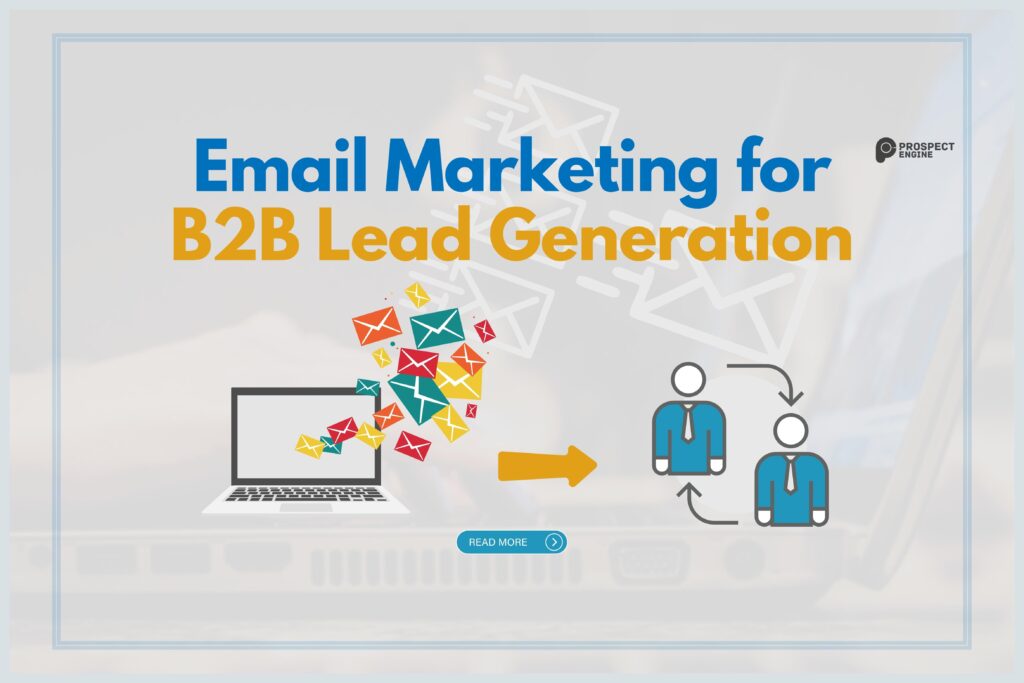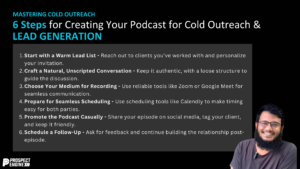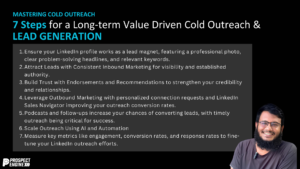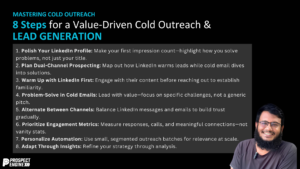Introduction
B2B lead generation is a crucial aspect of business growth, where identifying and nurturing potential clients is essential for sustained success. Within this landscape, email marketing plays a pivotal role. It’s a versatile tool that allows businesses to reach decision-makers directly and offers a cost-effective way to engage with potential clients. This outline explores how email marketing is potent in the B2B lead generation process, highlighting its multiple facets and strategic advantages.
Direct Communication with Decision Makers
In B2B lead generation, establishing direct communication with decision-makers is paramount. Email marketing offers a highly effective means to achieve this objective. Unlike traditional channels, such as cold calling or physical mail, email provides a direct line to the desks and inboxes of critical individuals with the authority to make crucial purchasing decisions.
Email marketing empowers businesses to circumvent gatekeepers and middle-tier managers, often acting as barriers to accessing decision-makers. This direct communication saves time and significantly enhances the likelihood of delivering your message to the right audience. Consequently, email marketing serves as a powerful leveller, granting organizations of all sizes the opportunity to engage directly with the most influential figures in the B2B decision-making process.
Additionally, email marketing offers the advantage of asynchronous communication. Decision-makers can review emails at their convenience, allowing them to digest the information and respond when their schedules permit. This flexibility aligns with the busy lives of executives and facilitates well-considered responses. It increases the probability of initiating meaningful dialogues that can lead to valuable business relationships and conversions.
Cost-Effective B2B Lead Generation
Comparing email marketing to other B2B marketing methods reveals its inherent cost-effectiveness. Traditional advertising or outbound sales efforts can be costly and yield uncertain results. On the other hand, email marketing offers a high return on investment (ROI) when executed effectively. Targeting specific audience segments and tailoring your messages can minimize costs while maximizing your lead-generation outcomes.
Building and Nurturing Relationships
One of the strengths of email marketing lies in its ability to foster trust and nurture long-lasting relationships. Personalized communication, regular updates, and value-driven content enable businesses to establish themselves as trusted authorities in their respective industries. By consistently delivering relevant and valuable information, email marketing creates a strong brand presence and builds credibility, critical factors in converting leads into loyal customers.
Segmentation and Targeted Messaging
Email marketing allows for precise audience segmentation based on business needs and interests. This segmentation facilitates the delivery of highly targeted and relevant messages to different segments of your audience. Such personalization enhances the impact of your communications, making recipients more likely to engage with your content and take desired actions, such as requesting more information or making a purchase.
Driving Traffic and Conversions in B2B Lead Generation
In the realm of B2B lead generation, driving traffic and conversions is a fundamental objective. Firstly, targeting the right audience is essential. Identify your ideal customers through detailed buyer personas. Craft valuable, industry-specific content that addresses their pain points and needs. Distribute this content across various channels, including your website, social media, and email campaigns, to attract the right traffic. Engaging, informative content establishes your brand’s authority and entices potential leads to explore further.
Secondly, optimizing conversions requires strategic design and compelling calls-to-action (CTAs). Ensure your website is user-friendly and mobile-responsive, with intuitive navigation. Create enticing CTAs that lead visitors to specific actions, such as signing up for a newsletter or requesting a demo. Implement effective landing pages tailored to each offer. A/B testing different elements, like CTA button text or form fields, helps refine your conversion process. Leverage marketing automation to nurture leads, providing them with relevant content and personalized interactions that guide them down the conversion path.
Lastly, trust-building is paramount in B2B lead generation. Showcase your expertise with case studies, client testimonials, and industry awards. Active engagement on social media platforms where your audience congregates can enhance your brand’s credibility. Hosting webinars and virtual events lets you connect directly with prospects, demonstrating thought leadership. Additionally, personalized email campaigns and marketing automation tools can foster relationships, ultimately boosting conversion rates. Remember that successful B2B lead generation is an ongoing effort, requiring continuous analysis and adaptation to meet evolving market needs.
Lead Scoring and Prioritization
Email marketing tools allow for identifying and segmenting leads based on their engagement with your content. By tracking open rates, click-through rates, and other interactions, businesses can assign lead scores and prioritize their efforts accordingly. This ensures that limited resources are directed towards high-potential leads who are more likely to convert, thereby optimizing the lead generation process.
Feedback and Engagement
Emails can also serve as a platform for gathering valuable insights through surveys and feedback forms. By periodically seeking input from potential leads, businesses gain a deeper understanding of their needs, pain points, and preferences. This data-driven approach not only enhances engagement but also enables companies to refine their strategies and offerings to serve their target audience better.
Drip Campaigns and Automated Nurturing
Drip campaigns, a series of sequenced emails, are instrumental in providing consistent value to leads and guiding them through the sales funnel. These automated campaigns can be tailored to different segments, ensuring that leads receive content that is relevant to their stage in the buying process. By automating nurturing efforts, businesses can efficiently move leads closer to conversion without constant manual intervention.
Metrics and Analytics
Email marketing provides a wealth of data through metrics and analytics. Tracking open rates, click-through rates, and conversion rates offers valuable insights into the effectiveness of email campaigns. Businesses can use this data to refine their strategies, A/B test different approaches, and continuously make data-driven decisions to improve their B2B lead generation efforts.
Maintaining Top-of-Mind Awareness
Regular newsletters and updates via email help businesses stay top-of-mind with potential leads. By periodically reminding leads about products, services, and special offers, email marketing ensures that your brand remains relevant and visible in their minds. This consistent communication is instrumental in keeping leads engaged and nurturing them until they are ready to make a purchasing decision.
Conclusion
In conclusion, email marketing is a dynamic and strategic tool that is vital in B2B lead generation. Its ability to facilitate direct communication with decision-makers, cost-effectiveness, relationship-building capabilities, targeted messaging, and data-driven approach makes it indispensable in the modern business landscape. By adopting a well-planned and strategic approach to email marketing, businesses can maximize their lead-generation efforts and achieve sustainable growth.





